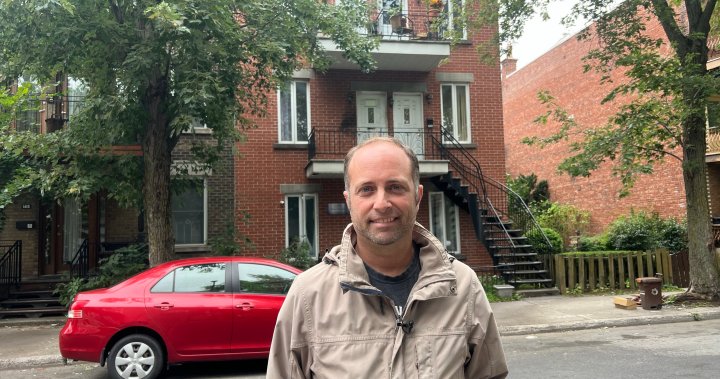A Montreal engineer and part-time professor, Francois Tardy, is facing frustration with Quebec’s slow housing tribunal after a new tenant in an apartment he owns sparked chaos on the streets and disturbed the neighbors. The new tenant, who moved in on a one-year lease in March, allegedly engaged in disruptive behavior such as smoking crack, defecating and urinating in public, and causing disturbances by howling and screaming. Tardy received complaints from neighbors and other tenants, with one describing the situation as akin to turning the apartment into a crack house. Videos shared by Tardy with Global News showed people consuming drugs in the street, despite the close proximity of an elementary school.
Tardy attempted to evict the problematic tenant, but the process proved to be more complicated than he had anticipated. Reports to the police did not result in criminal charges, as the alleged drug users were organized to carry small amounts of drugs. Police advised Tardy to seek an eviction order through the provincial housing tribunal, as it would provide more options for dealing with the situation. While police recently made arrests on the same street where Tardy’s building is located, the issues in the neighborhood persist. A Molotov cocktail was thrown at Tardy’s building, prompting police to conduct an operation targeting a drug-selling hub on Desjardins Avenue.
The Montreal police force, in response to Tardy’s allegations, emphasized their commitment to maintaining peace in the neighborhood and targeting drug-related activities. Despite the arrests made and the operations conducted in the area, Tardy expressed concerns that his troubles were far from over. A scheduled hearing at the provincial housing tribunal, initially set for June, was delayed until September, further prolonging Tardy’s efforts to address the disruptive behavior of his tenant. Tardy’s frustrations highlight the challenges faced by property owners in dealing with problematic tenants and the slow response of the legal system in addressing such issues.
The situation involving Francois Tardy’s apartment rental underscores the broader issues of drug-related activities and disturbances in residential neighborhoods. The presence of drug users and disruptive behavior not only affects the quality of life for residents and neighbors but also poses risks to the safety and well-being of the community. Tardy’s efforts to address the problem through legal channels, such as seeking an eviction order, highlight the limitations of the current system in providing timely and effective solutions to such issues. The delays in the legal process and the lack of concrete evidence for criminal charges demonstrate the complexity of dealing with disruptive tenants engaged in illicit activities.
The incidents on Hochelaga Maisonneuve street, including the throwing of a Molotov cocktail and the police operation targeting a drug hub, underscore the urgent need for coordinated action to address the root causes of such problems. Tardy’s experience serves as a wake-up call for authorities and policymakers to develop comprehensive strategies for preventing and addressing drug-related activities and disruptions in residential areas. The delays in the housing tribunal process, coupled with the challenges faced by property owners in enforcing evictions, point to the need for reforms in the legal system to better support landlords in dealing with problematic tenants. Ultimately, the case of Francois Tardy highlights the importance of community engagement, law enforcement efforts, and policy interventions to ensure safety and security in neighborhoods affected by drug-related issues.













